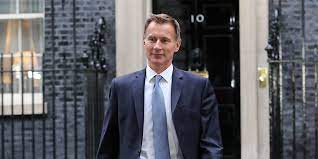Trustnet rounds up the key policies from chancellor Jeremy Hunt’s first Budget
15 March 2023
Chancellor Jeremy Hunt conducted his first Budget since taking the job last year with a range of measures that will influence people’s finances.
From abolishing the lifetime pension allowance to capping energy price and news that the UK is to avoid recession this year, below Trustnet rounds up all you need to know from the announcements made today.
Pensions
There was good news for savers with an eye on retirement as those concerned about the lifetime allowance (currently £1,073,100.27) were cheered by the abolishing of the limit that people can save before being taxed.
Hunt also upped the pensions annual allowance from £40,000 per year to £60,000 and the money purchase annual allowance for people who have already taken some of their pension out but want to add more was increased from £4,000 to £10,000.
The tapered annual allowance, which affects very high earners, will also rise by the same amount, while the ‘adjusted income’ threshold used to determine when the taper kicks in will increase by £20,000, from £240,000 to £260,000.
The maximum tax-free cash someone can take will be frozen at the current level of £268,275 as part of the reforms.
The economy and inflation
The Office for Budget Responsibility (OBR) suggested the UK will not enter a technical recession in 2023. It forecasts the economy will contract in the first quarter of 2023 by 0.4% and not grow in the second quarter, before growth returns for the remainder of the year.
GDP will fall by 0.2% on an annual basis over 2023 but has been revised up by 1.2 percentage points compared to the OBR’s November forecast, before growing by 1.8% in 2024 and 2.5% in 2025.
Meanwhile, the OBR said inflation is set to drop from 10.7% at the end of 2022 to 2.9% by the end of 2023. It means that, if correct, inflation peaked in October 2022 at 11.1%.
The OBR then expects inflation to fall to 0.9% in 2024 and to remain near 0% until mid-2026, before returning to the Bank of England’s 2% target by 2027-28.
Energy price guarantee
Energy prices have been a major cause of concern for many, with the energy price guarantee due to end in April. However, the chancellor announced today it will remain at £2,500 for the next three months, putting a cap on unit prices ahead of an expected fall in wholesale prices from July, when the original rise to £3,000 will take place.
Those on pre-payment meters, who typically pay more than those on direct debits, will have their charges brought in line with comparable direct debit charges.
Childcare
The chancellor announced new measures for parents, with more than £4.1bn of spending by 2027-28 to fund 30 free hours per week for working parents with children aged 9 months up to 3 years in England.
It will be based on the eligibility existing for three-to-four year-old who currently get 30 hours offered and is to be staggered, with parents of two-year olds eligible from April 2024 and parents of nine-month-olds eligible from September 2024.
ISAs
The annual allowances for ISAs remains £20,000 for cash and stocks & shares ISAs, and £9,000 for a junior ISA.
Duties
Hunt froze the duties on alcohol duty until August 2023, when they will rise in line with the retail prices index. Fuel duty was also frozen, with the 5p cut in rates extended for 12 months and no RPI increase this tax year.
By Jonathan Jones
Editor, Trustnet




